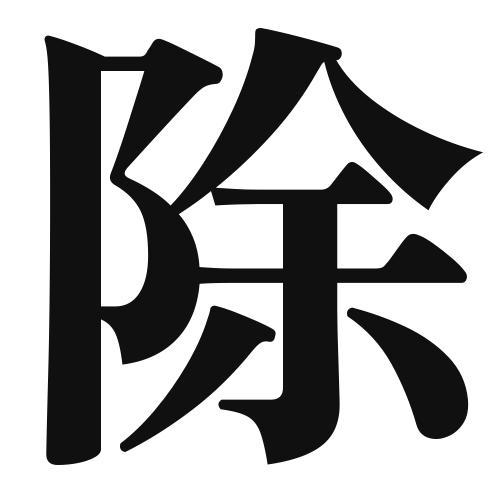1. Overview of Meaning
The kanji “除” (jo) means “to remove,” “to exclude,” or “to eliminate.” It is often used in contexts where something is taken away or left out.
2. Formation and Radical
Formation of the Kanji: The kanji “除” is a combination of the radical “氵” (water) and the character “除” which conveys the idea of removing something. It can be classified as a compound character (会意文字) as it combines elements to express a specific meaning.
Radical: The radical of “除” is “氵,” which is related to water, often indicating a connection to cleansing or removing impurities.
3. Examples of Usage
Common Words and Phrases:
- 除去 (じょきょ, jokyo) – removal
- 除外 (じょがい, jogai) – exclusion
Example Sentences in Daily Conversation:
- このリストから不要な項目を除いてください。 (Please remove unnecessary items from this list.)
- 彼はその問題を除外しました。 (He excluded that issue.)
4. Synonyms and Antonyms
Similar Kanji:
- 削除 (さくじょ, sakujo) – deletion, which implies a more permanent removal.
- 排除 (はいじょ, haijo) – exclusion, which often has a connotation of actively pushing something out.
Antonyms:
- 追加 (ついか, tsuika) – addition, meaning to add something.
- 包含 (ほうがん, hōgan) – inclusion, meaning to include something.
5. Cultural and Historical Background
Relation to Japanese Culture: The concept of “除” is significant in various cultural practices, such as purification rituals where impurities are removed to achieve a state of cleanliness.
Proverbs and Idioms:
- 「悪を除く」(aku o noroku) – “to remove evil,” which emphasizes the importance of eliminating negative influences.
